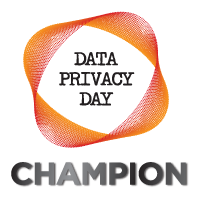Five Ways to Get Personal about Data Privacy
Posted Date: January 26, 2021
Effective Date: January 26, 2021
 January 28 is celebrated as Data Privacy Day by the National Cyber Security Alliance (NCSA), which leads an international effort focusing on respecting privacy, safeguarding data, and enabling trust. In observance of this day, Northwestern encourages each University member to use best practices and make informed decisions when managing personal data.
January 28 is celebrated as Data Privacy Day by the National Cyber Security Alliance (NCSA), which leads an international effort focusing on respecting privacy, safeguarding data, and enabling trust. In observance of this day, Northwestern encourages each University member to use best practices and make informed decisions when managing personal data.
Get Personal about Data Privacy
Do you know where to start? Here are five key things you can do to keep your data private and secure so that computers, mobile devices, and the vast online world are assets to you, not liabilities.
#1 Connect with Multi-factor Authentication
Multi-factor Authentication (MFA) is used at Northwestern to provide an extra layer of security before logging in to many University services by requiring multiple pieces of information or identification from you. It is also a valuable tool and critical in preventing unauthorized access to your personal accounts. Social media, banking, gaming, and email platforms have all rapidly adopted MFA, and you are encouraged to set it up when offered. Doing so will make your accounts much more secure and difficult to hack. Learn more about MFA at Northwestern.
#2 Maintain Strong Passwords
Your password is a powerful asset that provides access to many Northwestern systems: networking, financial records, email, and more. Securing your password means ensuring the privacy of Northwestern's data—and your own. Create strong passwords that are easy to remember but hard to crack. Consider using a password manager application such as LastPass to store and encrypt your account passwords securely. Remember to log out completely, especially when on public computers. And, NEVER share your password. Learn more about how to protect your password.
#3 Keep a Clean Computer
Malicious software can create entry points into your system that allow hackers to extract your data and can even allow them to log keystrokes to acquire passwords and other sensitive information as you type. Physical theft of a device can allow unauthorized individuals to access your personal information. To protect yourself, secure your devices with encryption, updates, and antivirus software.
#4 Phishing Awareness
Never reply to an unexpected email, telephone call, pop-up message, or text that threatens or persuades you into giving personal information. Be skeptical of fake shipment notifications around the holidays and supposed IRS calls during tax season to avoid getting phished. When in doubt about a message or call's legitimacy, contact the institution or person directly using known numbers or websites. When in doubt, check out the recent phishing attempts reported at Northwestern.
#5 Back Up Your Data
Regular data backups reduce the risk of permanent data loss for many reasons, including hardware failure, malware, and theft. Northwestern IT participates with University schools and departments to provide a secure hosted data backup solution for workstation machines. Solutions for home use include Carbonite, IDrive, and BackBlaze. Learn more about backing up data at Northwestern.
Connect and Protect
Northwestern IT and security teams across the University are partnering to promote best practices and behaviors that help students, faculty, and staff connect, protect, and secure Northwestern against cybercriminals' attempts to harvest sensitive information. Learn more about how you can keep a Secure Northwestern.